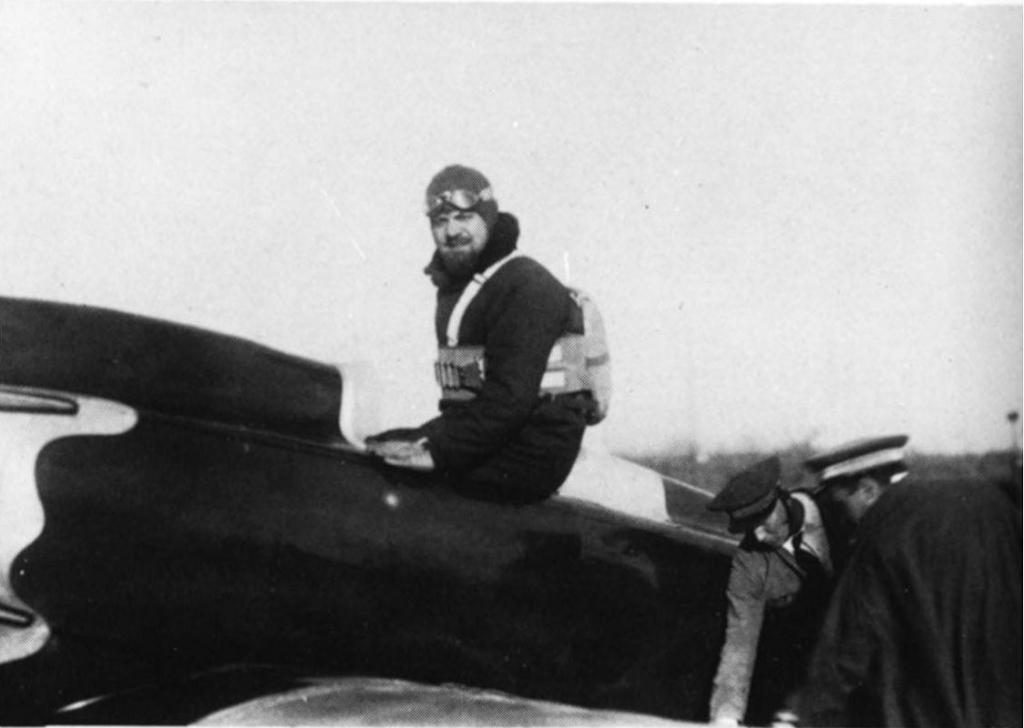July 15, 2018, marked the 85th anniversary of the first large-scale trans-Atlantic flight. Yet few Americans have ever heard of the event.
One reason may be that Italo Balbo, a member of Benito Mussolini’s Fascist regime, spearheaded this trailblazing aerial trek.
The world is grateful that Fascism has long since been cast into the ash heap of history. However, one can acknowledge an aeronautical achievement while repudiating the repellent ideology under which it occurred.
Though historians have castigated Charles Lindbergh for assorted pro-Nazi sympathies prior to Dec. 7, 1941, they still laud his solo Spirit of St. Louis journey.
Italo Balbo headed the-then Kingdom of Italy’s Royal Air Force (Regia Aeronautica). Having hobnobbed with Orville Wright and Henry Ford, he had been an early advocate of flight, presaging the advent of regular intercontinental air travel.
After years of technological and logistical planning, he led the voyage across the Atlantic in 1933. Spearheading a squadron of 24 Savoia-Marchetti SM.55X seaplanes in formation, the Regia Aeronautica’s air marshal flew on to Chicago in time for the Century of Progress World’s Fair.
General Balbo and his squadron departed Italy on June 30, 1933, arriving in the Windy City on July 15, with some refueling stops in Amsterdam, Londonderry, Reykjavik, Newfoundland, Nova Scotia and Montreal.
At Chicago’s Soldier Field, 100,000 well-wishers welcomed the crew. Mayor Edward Kelly declared “Italo Balbo Day” and named a street in the aviator’s honor. In New York, a ticker-tape parade was held down Broadway. And Balbo visited President Franklin D. Roosevelt at the White House.
Such accolades did not–and do not–mitigate, condone, support or embrace the harshness of Mussolini’s Fascist dictatorship.
In fact, Italo Balbo publicly denounced the repugnant racial laws of 1938. An outspoken opponent of Germany’s virulent anti-Semitism–and a fierce critic of the eventual Pact of Steel–Balbo invited Ferrara’s Jewish Mayor, Renzo Ravenna, to dinner at a restaurant frequented by the Fuhrer.
Jonah Goldberg has detailed the anomaly of the Axis alliance: “Not a single Jew of any national origin under Italian control anywhere in the world was handed over to Germany until 1943, when Italy was invaded by the Nazis.” Il Duce “actually sent Italian troops into harm’s way to save Jewish lives.”
In July of 1934, Balbo saw Mussolini mobilize 75,000 Italian troops at the Brenner Pass to thwart Adolf Hitler’s first attempted Anschluss of Austria. Along with FDR, Italy’s Air Marshall cheered when the German dictator backed down.
Still, Italy eventually joined the Axis.
But in The Wall Street Journal of Dec. 22, 1993, in an article titled “An Army of Schindlers From Italy,” Dorothy Rabinowitz wrote of “Hitler’s allies, the Italians, whose government ministries and army and highest political circles moved heaven and earth to see to it that no Jews under their governance fell into German hands.”
Rabinowitz noted how “Berlin was naturally bitter over this intransigence.” In fact, “The answer from the Italians was an unbending–if silent–‘Never.’ And, indeed, so long as Fascist Italy remained independent, and until its occupation by the Germans in 1943, the answer was the same.”
Moreover, she reported that “Not only would the Italian government–reflecting the popular attitude of the citizenry at large–resist deportation, its army and consuls undertook extraordinary efforts to rescue Jews in their zones of occupation. As an Axis partner, Italy’s forces occupied a large sector of Greece, part of Yugoslavia and eight sectors of southeastern France, including Nice.”
Italo Balbo did not meet Mussolini’s ignoble end. He was felled by friendly fire over the skies of Libya in 1940–long before Pearl Harbor. Consequently, it was Balbo’s aeronautical achievement of July 15, 1933–not his association with Il Duce’s regime–that prompted the-then NATO commander Dwight D. Eisenhower in 1950 to hail General Balbo as “a great leader and a gallant aviator.”
Rosario. A. Iaconis is Chairman of The Italic Institute of America and an Adjunct Professor of Social Sciences Department at Suffolk County Community College


























